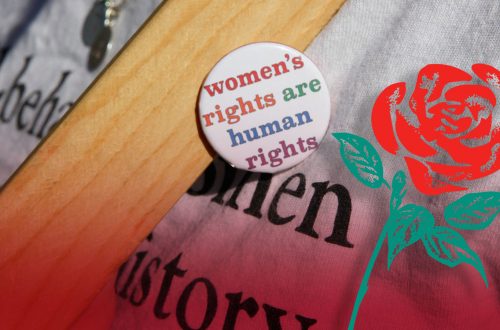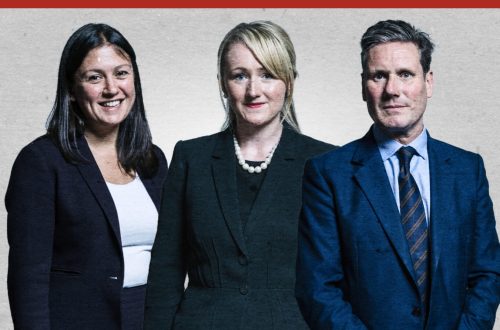Blairista is the first to respond to my open question – ‘what does it mean to be on the left?’ I hope others will rise to the challenge.
Andew makes a very succinct and I think highly pertinent point:
If you want to know what it means to be ‘left’ now then just think back to why you became ‘left’ in the first place (whenever that was!) and providing you’re not seeking nomination as a Labour MP or a job as a G2 columnist you should have the answer.
Well,I wouldn’t turn down either, however Andrew is spot on that going back to the roots is a very useful exercise. So here’s my attempt:
I was 15 years of age when I became interested in and active in politics. There was never the slightest doubt about which party I would join and when I reached my 16th birthday I got my Labour Party card.
What was it that attracted me to the Labour Party? Well, I grew up in a town called Nelson, near Burnley, which once carried the moniker of ‘Little Moscow’ – rather inaccurately as it turns out because while the milltown was a stronghold for Labour and other socialist organisations neither the Communist Party or any Marxist group had ever really taken root in the area . East Lancashire socialism came out of the liberal tradition of the non-conformist chapels and the trade union movement.
I had an interest in local history that had been helped by having a good teacher, who I always suspected of being a Tory, yet who was able to give us real insight into the lives of the millworkers and their struggles.
I got the bug for social history and it didn’t take long for me to discover the dreadful conditions that many had been forced to work and live in at the turn of the century in Lancashire. This insight didn’t just come from books but from conversations with family and friends of family who had worked in the mills and other factories.
Of course it didn’t escape my notice that it was trade unions that had won better conditions for working people and that it was the post-war Labour government that had put an end once and for all to workhouses and gross exploitation of labour.
While I was engrossed in this history, the Miners strike went into full swing and with a right-wing Tory government in power the idea of struggle suddenly became vividly real.
The phrase ‘the enemy within’ that was used by Thatcher made a lasting impression on me. Uttered by a haughty woman who for me symbolised the arrogance of wealthy upper-class southerners, against ordinary, mostly northern, working men it reinforced my basic feelings of ‘us’ and ‘them’.
It was a statement with which Thatcher aimed to polarise people and it worked on me. If there is one individual who was responsible for pushing me into becoming an active socialist it was Thatcher. As the strike went on I felt like I was part of the enemy within. I will never forget those months, the tension, the excitement, the incredible solidarity and then the misery of defeat.
All through the strike my father had been telling me that if the Miners lost then we were all screwed. He felt Scargill (who he disliked) had made a big mistake by not holding a ballot but he was with the miners 100 percent. He knew, like many other trade unionists, that a defeat for the Miners was a defeat for the whole of organised labour. It was basic class solidarity and I learnt the lesson.
Also at school, the poetry of Wilfred Owen made a strong impression. His description of being a soilder in the trenches in the First World War brought home the sheer brutality of war. The cold war nuclear tension was in the background all the time and so I identified strongly with CND. After studying Owen and then reading the history of how those who survived that horror were then thrown on the scrapheap of recession, the injustice and immorality of capitalism was confirmed.
I didn’t really start to take an interest in socialist ideology until later. It just seemed obvious to me, as a 16 year old, that Thatcherite capitalism benefited the rich at the expense of the rest of us, that it was immoral and that it wasted people’s potential. A simplistic view perhaps but from it I have certainly retained the belief that raw capitalism is not the peak of human achievement and that it is the duty of those on the left to work towards something better.
To be frank, I think if you stop believing that then you are not part of any left that I identify with.
I will never deny that as well as class, there was regional identity at work – and for me Labour was certainly the party of the North. It is often forgotten that while the Miners were battling for their jobs, London was in the midst of the ‘yuppie years’. The contrast struck me. I have been scolded for my ‘regionalism’ by fellow socialists over the years but I have never lost it – as the saying goes ‘you can take a boy out of the North but you can’t take the North out of the boy’.
Nelson being a town with a large Pakistani community, racism was always around but in the early eighties there was a real mixing among youth that has been lost in the past decade.
I played sport with Pakistani lads and we often came up against opposing teams who would try and stir up some racial tension. It got nasty quite often and while I doubt many of my white team-mates would describe themselves as ‘anti-racists’ they acted like they were. Racist comments against our Pakistan mates were responded to appropriately. You still find such an attitude among thirtysomethings in Lancashire, for some reason, perhaps to do with the balance of numbers, we were more comfortable with Pakistanis than either our parents or the younger generation that followed us.
By the time I went off to University I had two or three years of political experience behind me and my politics were firmly rooted in the left. I was for peace, equality and socialism and against war, racism and capitalism.
I joined the Communist Party at University which is a story for another day. Suffice to say that on an emotional level I never felt the Party was my party in the way I did with Labour. I enjoyed the chance to study Marx and others but it probably says something that when I graduated and returned to Nelson, I swiftly rejoined the Labour Party. I realised I was not a revolutionary and was a reformist.
While my politics continue to evolve (and the post-September 11 period has had a major impact on my outlook) certainly elements of the Marxism I was able to study remain– the historical analysis in particular, the way of looking at the balance of forces.
But if we are looking for what makes me consider myself still ‘of the left’ I think Andrew is right – it is those early emotions, partly a loyalty to ‘our side’, partly a commitment to a project that has decades of history behind it and above all the feeling that there is still much room for improvement in the world.


